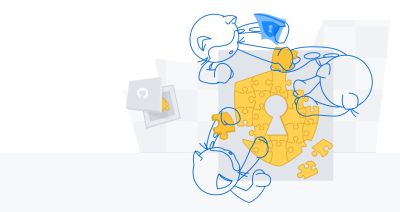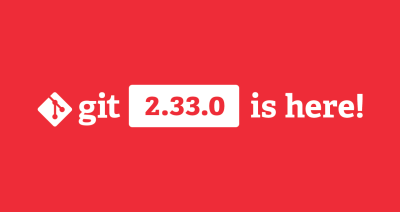
What’s new from GitHub Changelog? September 2021 recap
Catch up on 44 ships, including a colorblind-accessible theme, a public README.md for organizations, and customization of code review settings.

Catch up on 44 ships, including a colorblind-accessible theme, a public README.md for organizations, and customization of code review settings.

Since our last update, we’ve continued to improve the GitHub Issues beta to expand the capabilities of both project tables and boards. Here are some of the recent ships: 🌀…

We added support to receive notifications for updates from releases, branches, and repositories in the GitHub app in Microsoft Teams. You can now subscribe to your repository in your Microsoft…

GitHub Enterprise Cloud’s Services Continuity and Incident Management Plan is now available for self-service alongside additional resources under the Compliance tab. Enterprise owners may download and view current GitHub compliance…

Announcing new settings to help teams manage code review assignments. Also improved pull request filtering that lets you see just the pull requests you have been directly requested to review.…

This release brings over 70 new features and changes that improve developer experience and deliver new security capabilities.

We’re excited to announce that the GitHub Advisory Database now includes curated security advisories on the Rust ecosystem!

GitHub Actions now has an updated management experience for your self-hosted runners that makes it easier to manage runner groups and see the status of your runners. New Runners and…

GitHub Advanced Security customers can now edit their custom patterns defined at the repository, organization, and enterprise levels. After a user edits and saves a pattern, secret scanning searches for…

If you’re a GitHub Enterprise Cloud customer, you can now set up a stream of audit log and Git events to Splunk or an Azure Event Hub.

In August of 2020, we started highlighting stories that showcase how developers, maintainers, and organizations are moving humanity forward through The ReadME Project.

What did we ship in August? Codespaces, Discussions, and lots of other updates, from the general availability of the dark high contrast theme to an auto-generated table of contents for wikis.

GitHub Enterprise Server 3.2 is available today as a release candidate.

We put out a call to open source developers and security researchers to talk about the security vulnerability disclosure process. Here’s what we found.

Organization and repository admins can now trigger webhooks to listen for changes to branch protection rules on their repositories. For more info, see the documentation here.

Organization owners and individual users can now view their LFS usage by repository. For further info, see the documentation here.

Ensuring that software copyright allegations are specific and actionable benefits the entire developer ecosystem. That’s why GitHub submitted a “friend of the court” brief in the SAS Institute, Inc. v. World Programming Ltd. case before a Federal Court of Appeals.

The GitHub Social Impact and Policy teams are issuing a Request for Proposal (RFP) for a researcher to define a list of publicly available GitHub platform usage metrics by country for international development, public policy and economics disciplines.

GitHub Advanced Security customers can now retrieve private repository secret scanning results at the organization level via the GitHub REST API. This new endpoint, in beta, supplements the existing repository-level…

Maintainers can now manage the repository-level “Allow auto-merge” setting. This setting, which is off by default, controls whether auto-merge is available on pull requests in the repository. Previously, only admins…

The open source Git project just released Git 2.33, with features and bug fixes from over 74 contributors. Here’s a look at some of the most interesting features and changes.
Build what’s next on GitHub, the place for anyone from anywhere to build anything.
Catch up on the GitHub podcast, a show dedicated to the topics, trends, stories and culture in and around the open source developer community on GitHub.